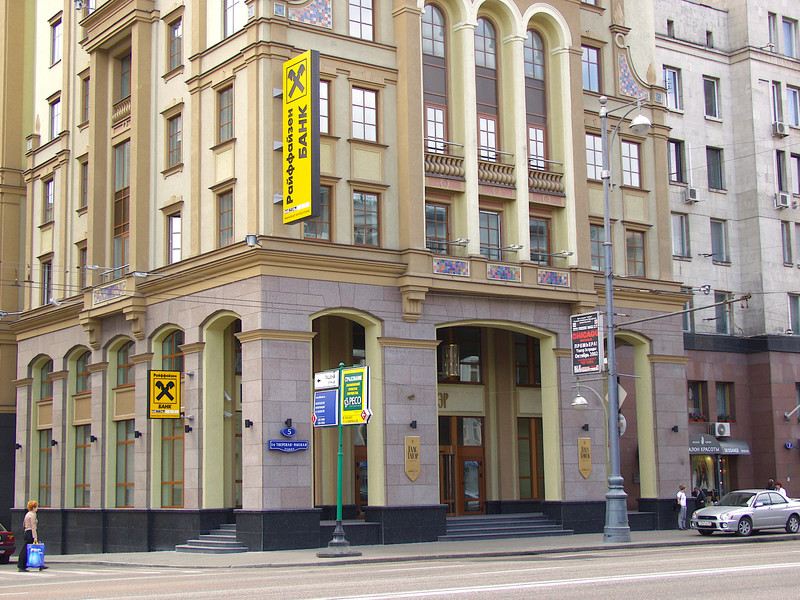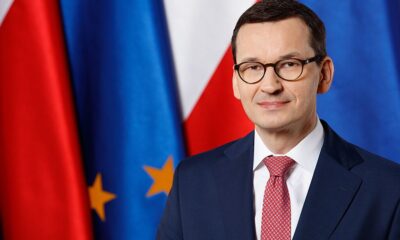Business
What countries have adopted the four-day work week and how is it working out so far?

The COVID-19 pandemic has reignited the conversation about the four-day week, with both workers and employers rethinking workplace flexibility and benefits.
The idea is simple: employees would work four-days-a-week, earning the same salary and benefits but with the exact same workload.
Reduced workweeks would lead to fewer meetings, and more independent work for companies.
Advocates of the four-day week suggest that it will increase employee satisfaction and productivity.
Trade unions in Europe are calling on governments to implement a four-day work week. But which countries have already adopted the idea, and how has it been received so far?
Belgium introduces four-day working week for employees who request it
Belgian employees were granted the right in February of last year to work a full week of work in four days, instead of the normal five.
The bill was passed on November 21 and allows employees to choose whether they want to work four or even five days per week.
This does not mean that they will work less, but they will simply reduce their working hours to fewer days.
Alexander de Croo, Belgian Prime Minister, hopes that this change will help make Belgium’s notoriously stiff labour market more flexible. It will also make it easier for families to combine work and family life.
He also said that the new model would create a dynamic economy.
He said that the goal was to give companies and people more freedom in arranging their work schedules. “If you compare us with other countries, you will often find that we are less dynamic”.
Eurostat data from the third quarter of 2020 shows that only 71 of 100 Belgians aged 20-64 have a job. This is 10 percentage points lower than the eurozone’s average of 73, and 10 percentage points lower than neighbouring countries like the Netherlands and Germany.
The seven-party federal coalition agreement in the country has set an employment rate goal of 80 percent by 2030. This would allow it to maintain its legal pensions or finance future tax reductions.
The prospect of a four day work week is not attractive to everyone.
Some full-time workers will work very long days if you choose to reduce your hours. Others, like shift workers, won’t have that option.
UK trial already hailed ‘extremely succesful’
After a six-month trial, companies in the UK plan to make the four-day week permanent. They have hailed the experiment as “extremely effective”.
The six-month pilot program, the largest of its kind, was launched on 6 June to study the impact that shorter working hours have on productivity and employee well-being. It also examines the impact on gender equality and the environment.
You can find out more about this by clicking here. 61 UK companies with more than 3,300 workers The programme, which is run by researchers from Cambridge, Oxford and Boston College as well as non-profit advocacy groups 4 Day Week Global and the 4 Day Week UK Campaign, and the UK think-tank Autonomy, has attracted a number of participants.
A large majority of companies – 92 per cent – have decided to continue the four-day work week policy, hailing it as a ‘major breakthrough’.
Employees are expected to follow a “100:80%” model, which means they will receive 100% of their pay for 80% of the time in exchange for an agreement to maintain at least 100% productivity.
The pilot program in the UK is just one of many worldwide that are being run by 4 Day Week Global. This organization advocates for a shorter working week.
Joe Ryle, Director of the 4 Day Week UK Campaign said that similar programmes will be launched in the US, Ireland, and Canada.
Join the growing global movement in Scotland and Wales
In Scotland, the government will begin a trial in 2023. Wales is also considering such a trial.
The decision was a culmination of the Scottish National Party’s (SNP) campaign promise.
The workers’ hours will be reduced by 20%, but they won’t lose any compensation.
The SNP will provide approximately PS10 million (EUR11.8 millions) to the participating companies.
The government cited a recent survey conducted by the Institute for Public Policy Research in Scotland, which showed that 80 per cent of those who responded to the idea were very positive about the initiative.
The respondents said that the programme would improve their health and happiness.
Scotland cited Iceland’s strong results as one of the main reasons for taking a risk with a four-day week.
Some Scottish businesses already have their own shortened workweeks. Glasgow-based UPAC Group announced recently that its employees would enjoy a four day week with the same pay after running a successful test programme.
The Welsh Petitions Committee, within the Senedd, (Welsh Parliament), recommended to the Welsh government on January 24, that a pilot program be implemented following the publication a report into the concept.
Jack Sargeant, a member of the Senedd as well as the chair of the committee, told the website Nation.Cymru Wales should be the leader in exploring a four-day work week.
“It’s a bold idea, but not more so than those who fought to get a five-day work week, paid holidays and sick pay that we now take as a given,” he said.
“When we call for a four-day work week, we are (talking about reducing) the working hours in an organisation but not a decrease in the rate. There are several studies that show productivity increases.
Now it is up to the Welsh Government to examine the proposal.
Sophie Howe, Future Generations Commissioner has also asked the government to introduce an identical four-day work week trial, if only in the public sector.
Spain begins a trial phase
Spain launched a project in December after the small left-wing group Mas Pais announced that the government had agreed with their request to launch an modest pilot programme of four-day work week.
The pilot will allow SMEs to reduce their work week by at least a half-day without affecting salaries.
The pilot is an experiment to see if productivity could be increased. The Spanish Industry Ministry announced that companies signing up for the program can receive a EUR10m government fund. However, they must develop ways to increase productivity in order to compensate for wage cost overruns.
The company must commit to the programme for a minimum of two years.
The government will partially finance the wage costs for the first year and will also help to fund training in order to improve efficiency.
Participants must have a full-time, permanent contract.
Iceland is a leader in the four-day work week
Iceland’s 35-36 hour workweek was the largest pilot in the world between 2015 and 2019. This is a reduction from the 40-hour traditional workweek.
The test phase involved 2,500 participants.
To ensure quality control, results were analysed both by the British think tank Autonomy and Icelandic non-profit Association for Sustainability and Democracy.
Researchers hailed the pilot as a success, and Icelandic unions negotiated a reduction in work hours.
The study led to a major change in Iceland. Nearly 90 percent of the working population has now reduced hours or made other accommodations.
Researchers found that burnout and stress among workers decreased, and the balance between work and life improved.
Not all governments have adopted the four-day work week as a success.
Sweden’s mixed reaction to the four-day work week
In Sweden, the four-day work week with full pay has been tested in 2015. The results were mixed.
The idea was to spend money on a trial of six-hour days instead of eight-hour days, but not everyone liked the idea.
Even the left-wing parties believed that this would be too costly to implement on a largescale.
The orthopaedics department of a university-based hospital saw positive results when it switched 80 doctors and nurses to a six hour workday. They also hired new staff to compensate for the lost time.
The medical staff’s response was positive, but the experiment was also met with a lot criticism and not renewed.
Some companies, like Toyota, have chosen to maintain reduced hours for their employees.
The car company had made this decision for mechanics ten years ago, and has stuck to it.
Finland has not implemented a four-day week, despite widespread claims
The northern European country briefly made international headlines earlier this year after it was reported that they had drastically reduced their working hours.
The Finnish government wanted to introduce both a four-day work week and a six-hour working day.
The government had to correct the record after it was revealed that the news was false.
The idea was tweeted by the current prime minister Sanna Marin in August 2019, but it hasn’t been included in the agenda of the government.
German startups experiment with shorter working hours
Germany has one of the shortest working weeks in Europe. According to the World Economic Forum, the average work week is 34.2.
Despite this, unions continue to call for further reductions in working hours.
IG Metall is the largest trade union in the country. It has called for shorter work weeks to help keep jobs and prevent layoffs.
According to a Forsa study, 71% of German workers would prefer to work only four days per week.
Over three quarters of those surveyed support the government’s exploration of the possibility of introducing a four-day work week. More than two-thirds of employers supported this.
A majority of employees (75%) believe a four-day work week would be desirable, while a majority of employers (59%) feel it should also be possible for employers.
Nearly half of employers (46%) said they think it is “feasible” to try a four-day work week at their workplace.
It remains to be seen whether this measure will be implemented. It is mainly small start-ups who are currently experimenting with a reduced working week.
Japan’s large corporations move to a four-day week
In other countries, such as Japan, the larger companies are venturing into the territory after the Japanese government announced in 2021 a plan to achieve better work-life harmony across the nation.
This could be beneficial for many reasons, as death from overwork is a major cause of death in the country.
Staff who work extra hours are more likely to become ill or suicidal due to the excessive workload.
Microsoft, a tech giant, experimented in 2019 with the model. It offered employees three-day weekend for a whole month.
The move increased productivity by 40% and led to more efficient work.
Unilever is currently testing the shorter workweek in New Zealand
In New Zealand, 81 Unilever employees are currently participating in a trial of a four day workweek with full pay.
“Our goal is not to measure performance by time, but by output.” Nick Bangs, Unilever New Zealand’s Managing Director, said that the old ways of doing things are no longer relevant.
If the experiment is a success, reportedly it will be extended to other nations.
Strong interest in the US, Canada
According to a Qualtrics survey, 92 percent of US workers support a shorter workweek even if that means working longer hours.
Employees surveyed reported that they perceived improved mental health and increased productivity.
Three-quarters of employees (74%) say they could complete the same amount work in four days. However, most (72%) say they would need to work more hours during their workdays.
According to a survey conducted by global employment agency Indeed, 41 per cent Canadian employers are looking at alternative hybrid schedules and work styles in response to the COVID-19 pandemic.
According to a survey conducted by Indeed of 1,000 employers in Canada, 51 percent of large companies with more than 500 employees are “likely” to implement a 4-day workweek.
Comparatively speaking, 63 percent of medium-sized companies with 100-500 employees say they would be willing to implement a shorter week.
According to a recent report by Maru Public opinion, 79 percent of full-time Canadian workers are also willing to reduce their five-day week to four days.
The four-day week is slowly but surely gaining popularity around the world, but it remains to be seen whether governments will adopt this idea.
Business
MEPs Urge Orban, To Act To Unlock EU Money

MEPs in charge of controlling the spending of EU funds continue to be “greatly concerned” about how Hungary manages EU money. They have called on Prime Minister Viktor Orban to implement reforms that will unblock EU funds that are currently suspended.
Monika Hohlmeier, a German MEP of the centre-right party, told reporters in Budapest on Wednesday (17th May) that “our goal is not to stop money; our goal is to spend the money in Hungary.”
The delegation of the European Parliament’s budget control committee reviewed the progress of the implementation of 27 super milestones – the measures that the EU Commission has set forth for the Hungarian government to unfreeze Cohesion and Covid Recovery Funds.
Hohlmeier stated that Hungary should implement measures “as quickly and as soon as possible”.
Last December, the EU countries approved a plan to grant Hungary EUR5,8bn under the bloc’s Covid-19 Recovery Plan, on the condition that Budapest implement 27 reform targets. These included strengthening judicial independence, and putting new anti-corruption measures in place.
The EU also suspended EUR6.3bn of cohesion fund payments to Hungary due to concerns about rule-of-law, which the EU claimed put the budget of the bloc at risk.
The negotiations between the government of Hungary and the commission are ongoing, but without any breakthrough.
MEPs do not have a direct say in the unlocking of funds. The European Parliament has kept up political pressure on EU officials to ensure that Hungary adheres to EU rules regarding independent judiciary, and fights corruption before receiving EU funds.
“The picture that emerged” […] Lara Wolters, a Dutch left-wing MEP, said that the lack of information regarding financial oversight of government expenditures, as well as issues in control audits of public procurements and conflict of interests, is a major concern for us.
“Real structural change is the only way to bring about real change.” [changes]She added that the media in Hungary was hostile towards the committee.
Media close to the government asked the MEPs at the press conference if EU money was connected to Hungary’s rejection to perceived EU policies regarding migration, gender and Ukraine. They also asked if the MEPs supported the delivery of weapons to Ukraine and what they thought of corruption in Brussels.
Petri Sarvamaa, a centre-right MEP from Finland, said in Budapest: “We don’t invent this stuff.” He added: “Our only purpose is to make sure that the EU budget in any member state is not at risk. This is not about Hungary.
Hohlmeier also added that the committee traveled to Spain Italy and Bulgaria to monitor EU expenditure.
Daniel Freund, German Green MEP, however, said that despite his eighth visit to Hungary he found “unthinkable” things in any other EU country.
“A rule by decretal, a state emergency for eight years, now ongoing, 95 amendments to the budget [in 2022] “Armed inspections of a food pantry by the tax authority without the participation of the national Parliament,” Freund said.
“We want EU funding to go to Hungary to build schools, put solar panels on the roofs, have fast internet everywhere and to provide social assistance to Hungarians who are most vulnerable,” he said.
“But we do not want EU funds to be used to enrich the family members and friends of Mr Orban, by breaking EU rules regarding fight against corruption and prevention of conflict of interest,” Freund added.
Tibor Navracsics said on Wednesday that he believed the European Parliament delegation had not read all the background material sent to them in advance.
According to media reports, he also claimed that political biases had influenced many MEPs’ opinions and that as a result factual errors have been made in some cases.
Business
Growing Fear EU Firms In Russia May Be Forced To Finance War

The EU is preparing to assist their companies in leaving Russia amid the growing risk that they will be taxed and used to fund the war of Russian President Vladimir Putin.
The proposals for the 11th round Russia sanctions, as seen by EUobserver include special new permits and legal services to help European companies get out.
Since the beginning of the war, more than 1,600 Russians and Russian entities have had their assets frozen by EU.
The 11th round adds another 100 names.
The new proposal allows EU countries to authorize financial transfers to Russians on the blacklist “after determining that such funds or resources are necessary to complete transactions, including sales which are strictly required for the winding down, by 31 August 20,23, of a joint-venture or similar legal arrangement established with this person or an entity owned or controlled by this person before 28 February 2020”.
The EU also banned European law firms providing commercial services to Russian customers.
The 11th round proposal is intended to ease this as well, in order to help untangle the related EU-Russian interests within Europe.
The proposal stated that “Competent Authorities of the Member States may Authorise until 31 Dec 2023 the Provision of Legal Services which are Mandatory… for such divestments, such as Notary Services”,
According to a running count kept by Yale University, the US, and last updated on May 16, more than 1,000 foreign companies have already fled Russia in the past year.
There are still dozens of large European companies operating in Russia.
Some of the biggest European banks (Deutsche Bank ING Bank Raiffeisen Bank International UniCredit, OMV and Total) and energy companies (Engie, OMV and Total) are included.
This includes well-known brands such as Armani Benetton Diesel Lacoste and Lacoste.
Also included are the following: Austrian energy drink maker Red Bull; Danish medical equipment manufacturer Coloplast; Dutch consumer goods company Phillips and drinks producer Heineken; Estonian taxi firm Bolt and French hotel chain Accor, Clarins cosmetics maker and German engineering firm Bosch.
Staying in Russia for the past year has been a calculated risk of financial reward versus reputational risk.
Since the war, the share value of Austria’s Raiffeisen Bank International fell by 40 percent due to the opprobrium that comes with staying in place.
According to the independent Russian newspaper Novaya Gazeta, profits from its Russian operations reached a record EUR2.2bn by 2022, which accounted for more than 60% of total profits.
Russia is making it difficult for its old friends in the West to leave.
The Foreign Investment Commission of the Russian Finance Ministry now requires strategic firms, such banks and energy companies to obtain permission from the commission to sell Russian assets.
Novaya Gazeta reported that the government only issues 10 or so permits per month, despite a waiting list of 700 applicants.
In March, Russia made matters even worse by stating that foreign firms would have to pay a 10% tax on assets sold if they decided to leave.
The Russian Finance Minister Anton Siluanov said at the time that “we are creating conditions so… exit is not beneficial for foreign business”.
The new legislation that is coming could make staying even more of a financial and moral risk than before.
Due to favorable double-taxation agreements, most European companies paid little or no tax on their profits in Russia.
But, in March, the Finance Ministry proposed freezing these tax treaties with about 40 “unfriendly countries” that imposed sanctions against Russia, including the EU 27.
Putin has not yet implemented the proposal, but it is a matter that could be decided by a presidential order at any time.
His symbolism could be exposed after the EU imposes the 11th round in the coming weeks.
Putin also publicly asked on 2 May that his government “clarify” how it will handle dividend payments in the future to shareholders from “unfriendly” countries.
According to a Russian source who requested anonymity due to the sensitive nature of the information, new rules could see an up to 25% tax imposed on the Russian profit of EU firms like Armani, Clarins and Raiffeisen, as well as the rest of those who stayed.
Russian trap
Source: Siluanov’s exit fee of 10 percent could lead “Western companies unaware of the future dividend taxes to maintain some presence in Russia”, the source said.
“But once you’ve done that, [double-tax] After the termination of agreements, Moscow will impose new taxes on Western companies that are still present in Russia. They would be required to pay a tax on dividends up to 25%,” the source said.
EUobserver reported that “this would actually turn these companies into sponsors of Russian war efforts”.
The EU Foreign Service never comments on details about upcoming sanctions such as its motivations for suddenly lubricating European divestments.
It also told this site that advice to private companies was a primary matter of national competency.
It added: “This time is not the right time to do business with Russia or in Russia because of its war against Ukraine, and due to the unpredictable nature of the local economy, investment and rule of law environments.”
This was only one of many warnings that Putin was preparing a bribe to foreign investors.
Exiled Russian tycoon Mikhail Khodorkovsky – whose oil company Yukos was seized 15 years ago by the Kremlin – warned on 2nd May that Putin had “demonstratively constructed an illegitimate, lawless state”.
“The withdrawal of assets was something that should have been started long ago, even before war. And on 24 February 2020 [the date of the Ukraine invasion]Khodorkovsky stated that the decision should have been taken.
Business
[Exclusive] MEP Luxury Pension Held Corporate Assets In Tax Havens
![[exclusive]-mep-luxury-pension-held-corporate-assets-in-tax-havens](https://eurotimes.eu/wp-content/uploads/2023/05/1420-exclusive-mep-luxury-pension-held-corporate-assets-in-tax-havens.jpg)
While the European Parliament was demanding a clamp down on tax havens, many of its own MEPs were using their monthly office allowances to finance a luxury pension scheme that held corporate assets in the Cayman Islands, Bermuda and elsewhere.
The investments, including in large banks requiring bailouts, were made at the height of 2008-2010 financial crisis that had ushered in mass unemployment and austerity cuts affecting ordinary Europeans.
Among those were 16,000 shares of Cayman Islands based Teck Resources Ltd, Canada’s largest diversified mining firm. The shares were held shortly before the European Parliament passed a resolution slamming the role played by tax havens in encouraging and profiteering from tax avoidance.
“When investments take place through jurisdictions such as Cayman Islands and Bermuda, it should definitely make the alarm bells go off,” said Tove Maria Ryding of Tax Justice advocacy group.
Ryding said that although not all investments through these jurisdictions are problematic, they should definitely be a reason for introducing extra precaution and high standards of transparency.
The latest revelation also comes at a time when the European Parliament is trying to regain public trust in the wake of the Qatargate corruption scandal, where one of its now former vice-presidents is awaiting trial wearing a police ankle monitor.
The investments were made on the behalf of a so-called voluntary pension fund, a Luxembourg-based scheme that is currently running a €379m actuarial deficit and which may require a taxpayer bailout as as early as next year. MEPs at the time only had to contribute two years into the fund in order to then receive a pension for life.
The parliament’s secretive leadership, known as the Bureau, is currently scrambling for solutions in the hopes of avoiding another public relations disaster ahead of the 2024 European elections.
The issue has riled critical MEPs who have for years been piling on pressure for the Bureau to come up with answers but to no avail. Among them is Monika Hohlmeier, a German centre-right MEP who chairs the powerful budgetary control committee.
“The Voluntary Pensions Fund has been causing me serious headaches for some time now,” she said, in an email.
“When I now hear that the investment strategy included assets in tax heavens such as the Cayman Islands, then it just adds to the ever-growing list of problems this fund accumulated”, she said.
Coal mine shares aside, the fund also held numerous shares in the Bermudas, as well in other tax havens like Hong Kong, Singapore, and Switzerland. The fund eventually bounced back to pre-global financial crisis figures, noted asset managers in a 2011 report.
EUobserver obtained the list of investments spanning 1994 to 2010 from the Luxembourg business register.
But the breakdown of individual investments stops post 2010 with the European Parliament refusing to release any further details.
“The voluntary and complementary pension fund for MEPs was created in 1990, when there was no single statute for MEPs,” said a spokesperson from the European Parliament.
“The fund was closed in 2009, when the new MEPs’ single statute entered into force,” she said, noting the fund is a non-profit association governed by Luxembourgish law.
Although no longer open to MEPs since 2009, the fund is still making investments today on their behalf.
Asked about those investments, she said the European Parliament was unable to comment because the fund is a “third party”.
This comes despite the fund’s board being composed of sitting MEPs, including Janusz Lewandowski and European parliament vice-presidents Othmar Karas and Roberts Zile.
Zile is the parliament’s document gatekeeper. Late last year, he refused a freedom of information request filed by EUobserver to disclose additional information on the voluntary pension fund.
And earlier this month, the European Parliament passed its budget report and called upon the Bureau to clarify the entitlements of current and past MEPs stacking up multiple pensions.
The Greens had tabled an amendment demanding MEPs withdraw from the voluntary pension fund if they already receive another pension.
But that amendment was voted down 272 against 203. Among those rejecting it were Lewandowski, Karas, and Zile. The latter two are beneficiaries of the voluntary pension fund.
Other notable beneficiaries include the EU’s foreign policy chief Joseph Borrell as well as former European climate commissioner Miguel Arias Canete and others.
-

 Health & Society6 days ago
Health & Society6 days agoPope Francis calls on religions to unite to reduce demand for drugs
-
EU & the World6 days ago
Mike Lynch Yacht Update: Fifth Body Recovered Off Coast of Sicily
-

 EU & the World6 days ago
EU & the World6 days agoAshanti & Nelly Welcome First Child Together & Reveal Baby Boy’s Name
-

 EU & the World6 days ago
EU & the World6 days agoDoes Travis Kelce Appear in Swift’s ‘I Can Do It With a Broken Heart’ Music Video?
-

 Sports6 days ago
Sports6 days agoAtalanta: PSG-Lookman, there is news
-

 Politics6 days ago
Politics6 days agoPoland’s Former Prime Minister Mateusz Morawiecki Eyes Leadership of European Conservatives and Reformists
-
Travel7 days ago
New Brussels to Venice night train: The 9 cities en route, what it will cost and how to book
-

 Health & Society6 days ago
Health & Society6 days agoSexual abuse, electric shocks, chemical restraints in Mental Health Care, report finds










